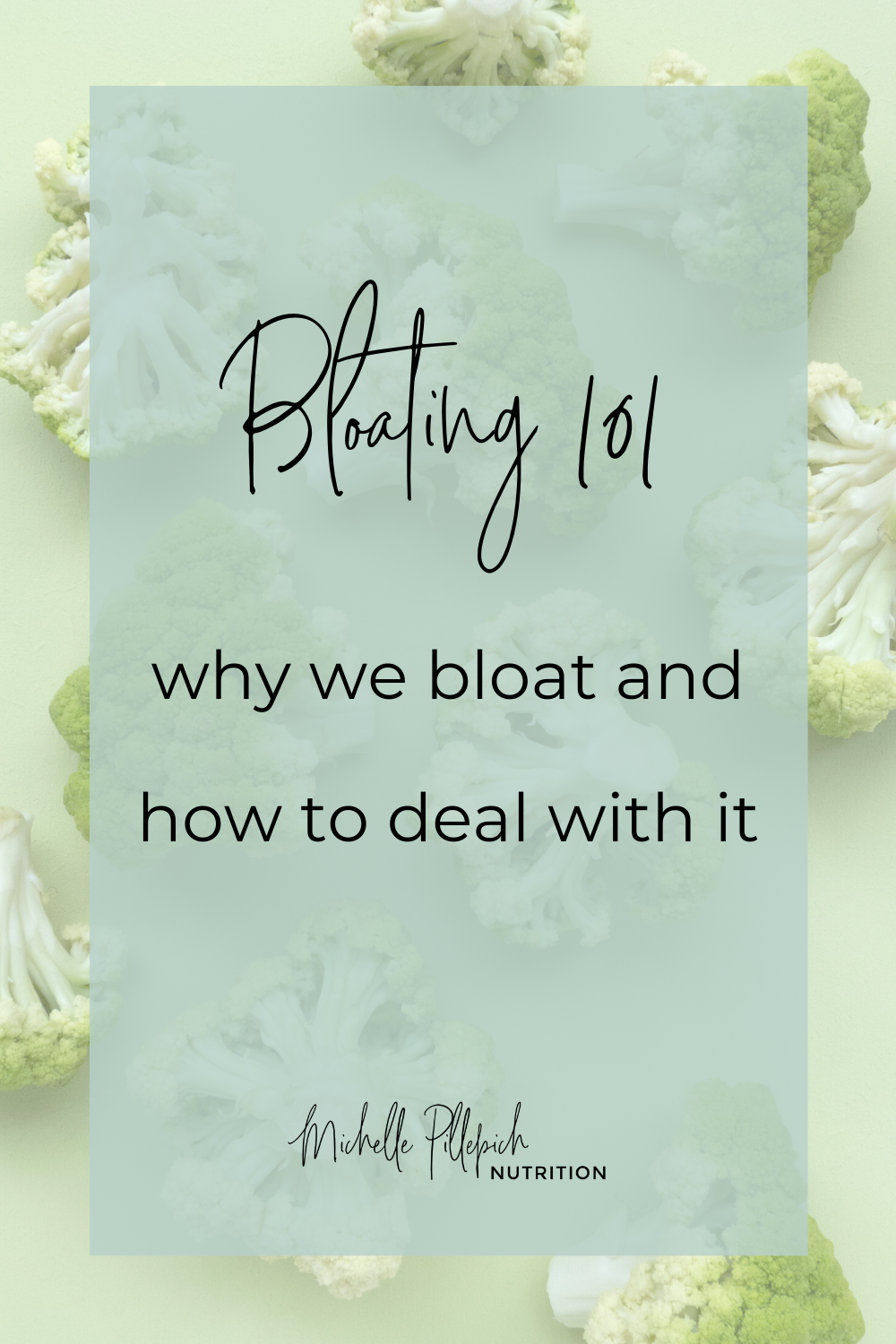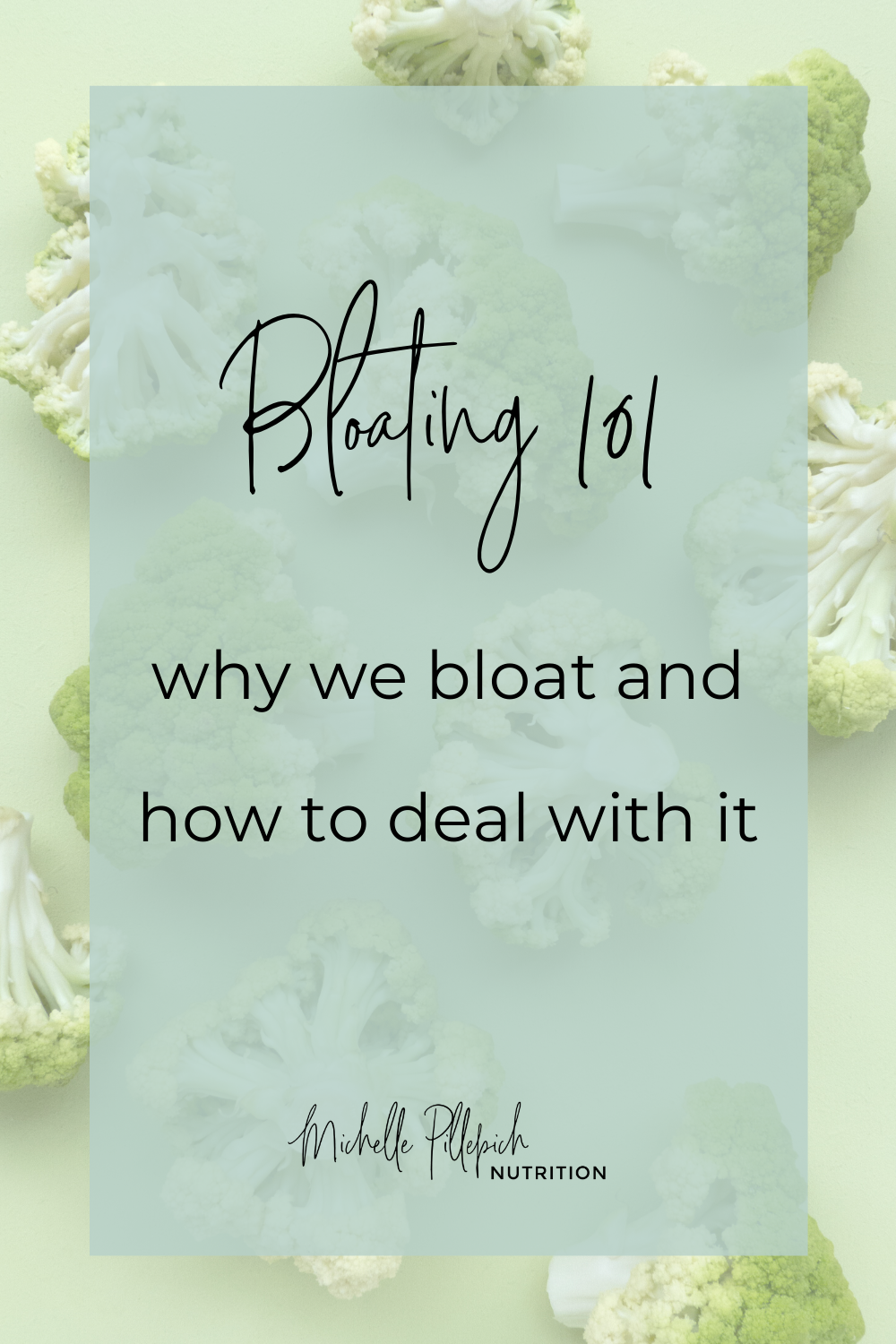
Bloating. It happens to us all, and it bothers us all! Bloating is not a comfortable feeling, but that doesn’t mean it’s not completely normal. I hear from clients all the time that bloating is highly intolerable and can often lead to disordered behaviors because of how tough it is to sit with the feeling of an expanded stomach. I wanted to share why bloating happens and what can help alleviate it so that you can hopefully limit the bloat and also know that it is ok and it will pass when it does inevitably happen.
Bloating occurs from an accumulation of gas or air in our GI systems. This excess air can be created internally because your body is producing gas while digesting certain types of foods, or it can be taken in from an external source based on behaviors you use while eating. We will get into both scenarios.

Let’s start with food. In short, foods that cause bloating often have a lot of fiber. If you are struggling with feeling bloated often, my first question would be: are you going overboard on fiber? If you have fruits and veggies as snacks, salads loaded with vegetables and beans, a dinner that is mostly vegetables, fruit again in the evening…that’s all a lot of fiber! None of these foods are bad, but overdoing the fiber will certainly make your gut work harder. Cruciferous vegetables like cabbage, broccoli, and cauliflower are the hardest to digest without some gas and bloat occurring so those might be some to limit when you are feeling uncomfortable. Other than fruits and veggies, beans and legumes are also gas culprits. These are great protein sources for anyone who does not eat meat, but if you struggle with bloating try to swap them out for tofu, tempeh, or quinoa so that you aren’t going fiber crazy by having beans everyday.
Foods that cause bloating:
FIBER (fruits and veggies, especially cruciferous vegetables)
Beans
Legumes
Whole grains
Bloating isn’t only based on the food you eat. Behaviors that we use while eating can also increase the amount of air and gas in our systems. Some of these behaviors are:
- Eating too quickly
- Drinking through a straw
- Drinking carbonated beverages
- Eating while stressed
If you frequently engage in any of these behaviors, try the opposite instead…slow down so that you aren’t taking in extra air by gasping with speed, don’t use straws, drink flat beverages that won’t put bubbles in your system, and try to stay relaxed at mealtimes.
Both food and behaviors contribute to bloat, and it is also important to note that bloating is sometimes an unavoidable but temporary thing. If you are recovering from an eating disorder and are following a meal plan, you might be bloated because you simply aren’t used to eating an adequate amount of food and your body is getting used to processing it. If you have changed your eating by going vegetarian or incorporating more plant based foods, the increase in fiber can cause bloating because you simply aren’t used to it. It is helpful to be aware of the amount of fiber you are eating so that you can be sure you are including fibrous foods without going overboard. If you notice yourself having a fiber source every single time you eat, that could likely be too much. If a meal plan that is new and different is causing the issue, try ginger tea to calm your stomach while you adjust and know that it will pass with time.
Keep in mind these simple tips to reduce your discomfort…and remember…everybody bloats!
- How to reduce bloating
- Cooking foods thoroughly vs eating mostly raw
- Eating slowly
- Chew thoroughly
- Do some deep breathing to destress before a meal
- Mix high and low fiber foods